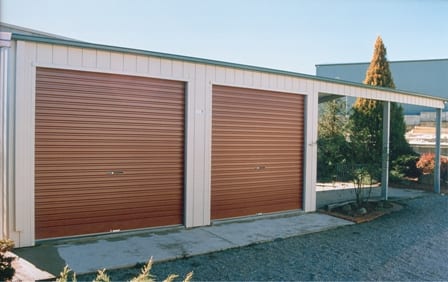As the number of Australian homes with solar panels installed passes the 1 million mark, the next great opportunity for households to take their own meaningful action on climate change lies dormant, unrealised.
Driving cars produces 35 per cent of the carbon emissions of the average Australian household, substantially more than appliance use (20%), hot water (12%) or lighting (6%), according to Department of Climate Change modelling.
Car use is built into the DNA of the average family’s daily routine in this country, with school pick-ups, trips to the supermarket, and commutes to distant workplaces. Even with improvements to public transport and more extensive bike lane networks, the car is almost certain to remain the dominant means of getting from A to B for most people.
There is a compelling opportunity for the 56 per cent of Australian households with two or more cars to move to what’s called a ‘Hybrid Garage’: one petrol car and one electric car, powered by 100 per cent renewable power.
In the Hybrid Garage the fossil-fuel driven vehicle with its 400km plus of driving range is the car of choice for any longer trips. The second pure-electric car with its range of around 150km is ideal for city-and-suburban trips, providing whisper-quiet driving at very low running costs.
Americans are increasingly making this choice. 50,000 plug-in cars were sold there last year.
By contrast, Australians purchased a paltry 18 electric cars last month, and only 252 in all of 2012.
The reasons we have been slow to embrace this new clean technology are varied. One is the commonly held misconception that the dominance of coal-fired electricity generation in Australia means that running an electric car actually produces more carbon pollution than a petrol car. This is plain wrong.
In fact it is cheap and simple to fuel your electric car with government-accredited 100% GreenPower products, supplied from wind and hydro plants on the grid. An electric car owner who chooses 100% GreenPower will spend around 2.5 cents per kilometre on fuel or $375 for 15,000km of mileage per year. For an equivalent-size petrol car the costs are much higher: around 13 cents per kilometre or $1,950 per year.
Another factor has been the high price of the first electric cars launched in the Australian market. Fortunately, this is now changing. A brand new pure-electric city car from Mitsubishi can now be purchased for under $30,000. Nissan’s 2012 Car of the Year, the electric Leaf, is now available on a special low-priced lease for just $499 per month. With compelling new cars set for launch in the next year from makers such as BMW, Tesla and Renault, we can expect competition to bring prices down further.
Some commentators have focused on the lack of public charging infrastructure for electric cars. It is true that there are over 9,000 petrol stations in this country, but just a few hundred public plug-in points.
But the experience of drivers in the US and Europe has shown that by the far the most important refuelling point is the charging unit in the home driveway or garage, since drivers rarely clock-up more than the 150km range of the battery in a day. In fact that is one of the advantages of going electric – you leave home every morning with a full battery and rarely need to worry about stopping to refuel while out on the road.
More public charging infrastructure in Australia would certainly help build confidence, but it is important to recognise that electric cars can also be charged at any one of the millions of regular power points already in place at homes, motels, and workplaces across the country.
It’s time for our million solar households to turn their attention to cutting their driving emissions, and converting to a Hybrid Garage.
Tim Watts is CEO of plug-in specialists Cloud Nine Cars, and co-founder of Flexicar carshare service










